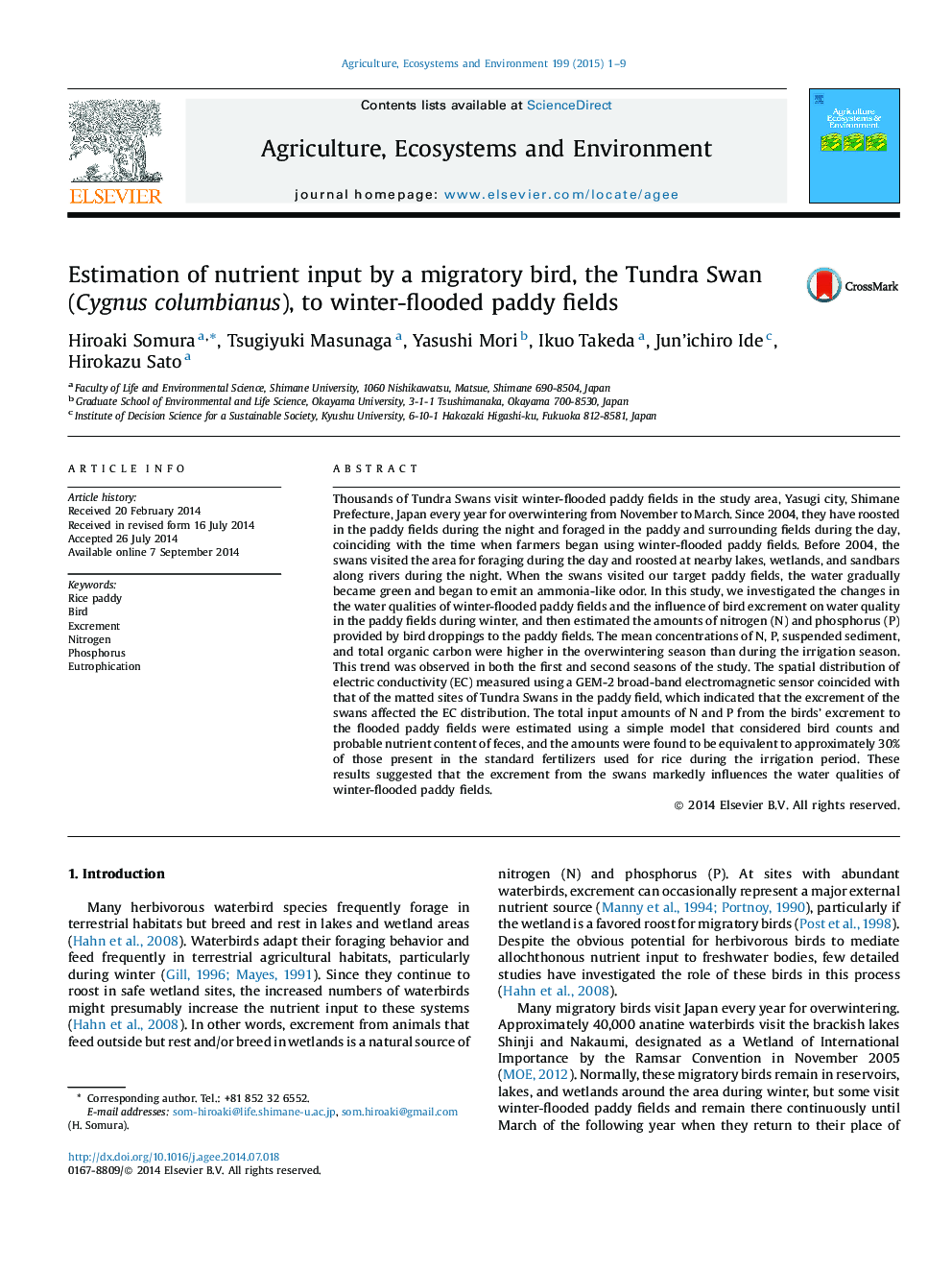| Article ID | Journal | Published Year | Pages | File Type |
|---|---|---|---|---|
| 2413838 | Agriculture, Ecosystems & Environment | 2015 | 9 Pages |
•Tundra Swans used winter-flooded paddy fields and surrounding areas for overwintering.•Water quality was affected by Tundra Swan roosting and foraging patterns.•Estimated N and P loads were equivalent to and 30% of the standard fertilizer amount.
Thousands of Tundra Swans visit winter-flooded paddy fields in the study area, Yasugi city, Shimane Prefecture, Japan every year for overwintering from November to March. Since 2004, they have roosted in the paddy fields during the night and foraged in the paddy and surrounding fields during the day, coinciding with the time when farmers began using winter-flooded paddy fields. Before 2004, the swans visited the area for foraging during the day and roosted at nearby lakes, wetlands, and sandbars along rivers during the night. When the swans visited our target paddy fields, the water gradually became green and began to emit an ammonia-like odor. In this study, we investigated the changes in the water qualities of winter-flooded paddy fields and the influence of bird excrement on water quality in the paddy fields during winter, and then estimated the amounts of nitrogen (N) and phosphorus (P) provided by bird droppings to the paddy fields. The mean concentrations of N, P, suspended sediment, and total organic carbon were higher in the overwintering season than during the irrigation season. This trend was observed in both the first and second seasons of the study. The spatial distribution of electric conductivity (EC) measured using a GEM-2 broad-band electromagnetic sensor coincided with that of the matted sites of Tundra Swans in the paddy field, which indicated that the excrement of the swans affected the EC distribution. The total input amounts of N and P from the birds’ excrement to the flooded paddy fields were estimated using a simple model that considered bird counts and probable nutrient content of feces, and the amounts were found to be equivalent to approximately 30% of those present in the standard fertilizers used for rice during the irrigation period. These results suggested that the excrement from the swans markedly influences the water qualities of winter-flooded paddy fields.
